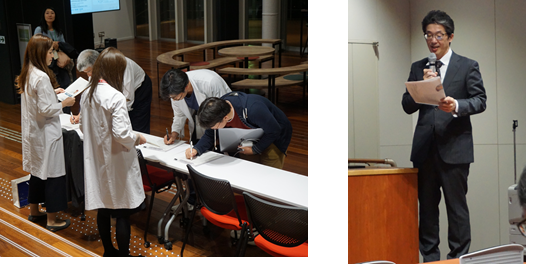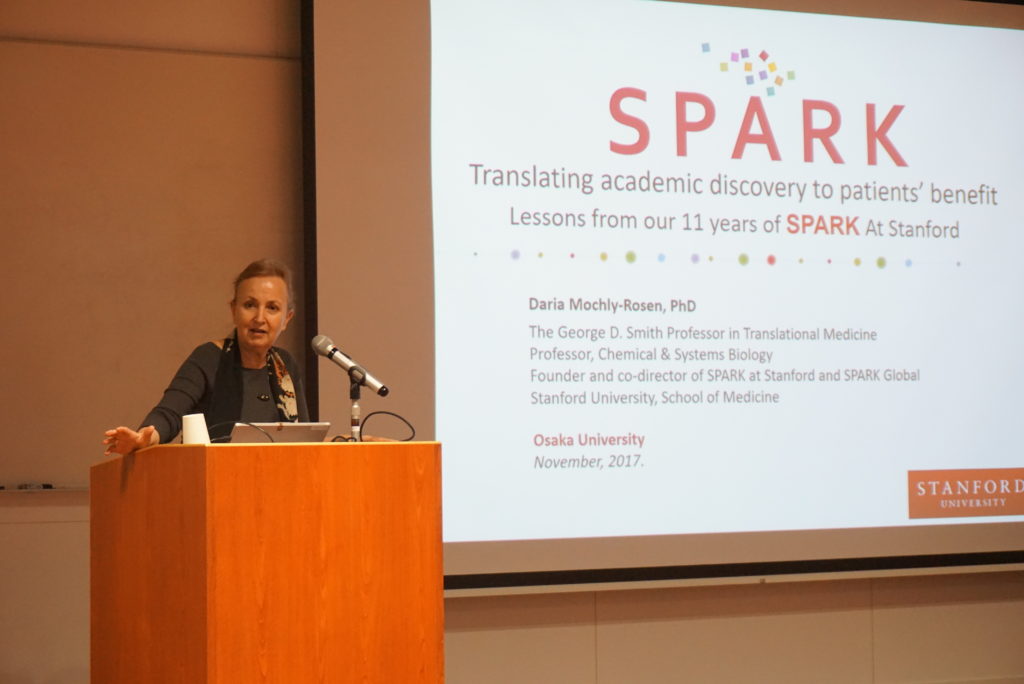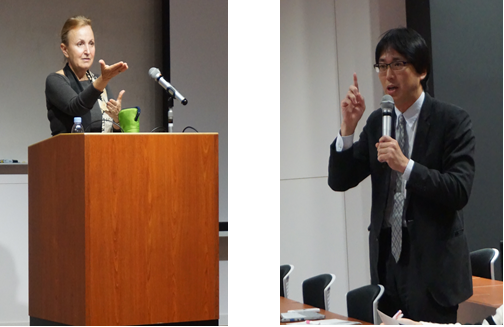Translating academic discovery to patients’ benefit Lessons from our 11 years of SPARK at Stanford
The 102th Mirai Iryou Seminar (Medical Center for Translational Research Seminar) was held at Multi-Media Hall, Center of Medical Innovation and Translational Research, Suita Campus on Thursday, November 7th between 6pm and 7pm. The lecturer was Dr. Daria Mochly-Rosen from Stanford University, and the title of this lecture was “Translating academic discovery to patients’ benefit: Lessons from our 11 years of experience at SPARK”, which was moderated by Dr. Koji NISHIDA, a director of the Department of Medical Innovation. Dr. Mochly-Rosen is the founder and co-director of the SPARK and currently staying in Kyoto for her for a short academic sabbatical. She generously accepted our short notice offer to give a lecture on SPARK program at our university.

Following the explanation of SPARK's mission in the beginning, Dr. Mochly-Rosen mentioned that the seminar was a valuable opportunity for her too, and the lecture was filled with her passion as she wanted to share as many as successful drug development cases. The audiences paid all their attention to her every single her word. Interestingly, this time, she gave an interactive lecture which may be a representative style of the SPARK. We have rarely held the interactive or participative lecture so that the audience were very hesitant to say something at first, but after one participant answered her question, the tension in the room was broken and we could see smile on her face.
In the latter part of the lecture, she explained the reasons for the SPARK program. She emphasized a phrase “Open exchange and no hierarchy”. Although we had intended to support projects with hierarchical structure, the “SPARKees” (the faculty members who lead the projects) should try to consider a flat relationship between researchers and those involved in the projects (the expert advisers and other SPARKees that attend the meeting). That phrase seems to have remained in everyone’s mind; the words of "No hierarchy, No hierarchy right?" came from all directions and then the lecture became definitely alive. This also occurred after the lecture.

In the Q and A session, Dr. Kiyoshi OKADA, a vice director of Center of Medical Innovation, and Dr. Daisaku NAKATANI, the head of the Global Clinical Research Support Office, asked questions regarding project management in the SPARK program. They wanted to know how the program decides on go/no go decision for the specific SPARK projects, what kind of projects does the program decide to accept at the get go (the very beginning). Dr. Mochly-Rosen gave a very clear answer to each inquiry with the compliment word as “It’s a Good Question” in American Style, the all audience listened her answers studiously.

At last, as closing remark, Dr. Mochly-Rosen proactively told why conducting the SPARK program in Osaka University is important and possible. For this lecture, there is very limited time for Q and A, after the lecture, students, researchers and residents ran one after another to Dr. Mochly-Rosen, and she responded to each person kindly.
When leaving Osaka University, she gave us a big smile and said “ARIGATOU” meaning both thank you and good bye in Japanese and also ‘otsukaresama deshita’, meaning good job!
We are certain that this lecture was truly meaningful and became an interactive time for all of participants.
For more information about the SPARK program, please go to the official website below.
http://med.stanford.edu/sparkmed/about.html


